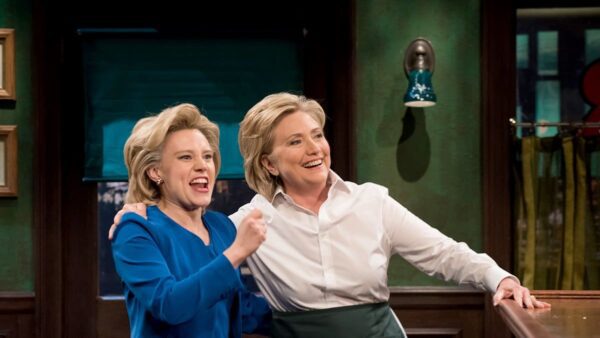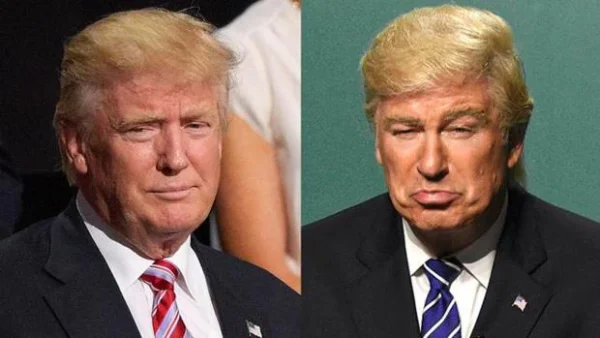As Kamala Harris and Donald Trump gear up for the 2024 presidential election in the US, the two candidates are fighting for the country’s future. Meanwhile, Gen Z is fighting over who can make a better meme out of it. The current presidential race serves as a modern example of a historical habit. From 18th-century caricatures to punk music, from CharliXCX’s “Brat” to the flourishing of the “coconut tree”, younger generations have always loved to humorously criticise the political landscape around them. It is an attempt to get their head out of the proverbial plastic bag that is suffocating them. With punchlines as their weapons and humour as their strategy, this generation is reframing politics and expressing their disquietudes. They use satire to tackle serious issues like climate change, economic inequality, and social justice while questioning the very structures of power through the lens of online content. For Gen Z, the battle isn’t just for votes—it’s for the narrative itself.
The voices of the young are becoming muffled in a political arena dominated by adults old enough to recall the introduction of colour television. Consequently, they have turned comedy into a powerful platform, using keen irony to highlight their political ideas.
Political humour has historically played an integral role in scrutinising power, with its first recognised and tangible expression being in the form of editorial cartoons in newspapers. In 18th century England, James Gillray was one of the first and perhaps the greatest caricaturists of his time. He created approximately a thousand prints, including portrait caricatures of the wealthy, well-known, or frivolous, and, without a doubt, the best satirical caricatures of British politics and social life during Napoleon’s reign. About a century later, the punk rock movement of the 1970s and 1980s gained momentum, led by bands such as the Sex Pistols, and employed artistic means such as fashion, music and slogans to attack the establishment. Deeply political, one of the key targets of the movement was the UK Prime Minister Margaret Thatcher and her conservative policies. The lyrics and imagery painted in songs like “God Save the Queen” (1977) served as anti-authoritarian anthems, criticising both the British Monarchy and the Thatcherist political system.
More recently, the biting political satire of SNL has served as a way for younger audiences to meme-ify political leaders and current events. Though the various sketches across the years have had humour as their primary goal, they often have had a significant impact on the public’s perception of their leaders. Popular examples include Dana Carvey as George H.W. Bush, Kate McKinnon as Hillary Clinton and, most recently, Alec Baldwin as Donald Trump. The vivid social commentary of the aforementioned examples as well as various other movements that came before have one factor in common: they were both sought after and feared. And that is the very sentiment the current youth is trying to convey.

Gen Z feels sidelined in a political arena dominated by political leaders who often seem disconnected from their realities– and, by extension, the reality of the nation they are supposed to serve. The voices of the young are becoming muffled in a political arena dominated by adults old enough to recall the introduction of colour television. Consequently, they have turned comedy into a powerful platform, using keen irony to highlight their political ideas.

The comically coincidental release of CharliXCX’s “Brat” album with the previously unprecedented candidacy of Kamala Harris for president of the United States is the most recent example of how something like “Brat Summer” can successfully merge with a presidential campaign to reach the younger electorate. By embracing the self-defined “Brat aesthetic” popularised by CharliXCX in her social media profile cover photos and content, Kamala HQ came a step closer to reaching Gen Z in its arena. Additionally, her quote, “You think you just fell out of a coconut tree? You exist in the context of all in which you live and what came before you,” has made rounds on social media, turning it into a “rallying cry”, thereby reinforcing her engagement with Gen Z 🥥🥥🥥🥥🥥🥥. All of the above and many more are some of the smart moves Harris’s PR team has taken to fight internet meme fire with internet meme fire.
In a surprising crossover, Kamala Harris’s appearance on the “Call Her Daddy” podcast conveys how a targeted effort to engage with a younger audience can be appreciated by them. During the podcast, she spoke out about women’s rights, and abuse as well as openly laid out her plans to realistically combat issues that concern the youth, such as buying a house in the current economy. For context, “Call Her Daddy” is the second most popular podcast in the world, amassing about 5M downloads each week, and is also the most listened-to podcast among women aged 18-24 and, due to the nature of its content, that audience is not necessarily political. All of the above shows that instead of staying shielded and ignoring the online discourse, Harris joined it, and turned it on its head, and largely in her favour.
In conclusion, memes have become the new editorial cartoons, with Gen Z acting as the cartoonist. Being the proud product of many centuries of social commentary and political discourse, today’s digital landscape is filled with societal frustrations and cultural absurdities of a generation that just wants to be heard. Jokes like the “coconut tree” and “Brat summer” aren’t just fleeting tomfoolery; they serve as a tool of resistance, commentary, and, let’s face it, pure chaos.
Through the creativity and frustrations of Gen Z, humour has been transformed yet again into a cultural power, showing that laughter can be one of the most effective ways to criticise, resist and ultimately create change, even when faced with a critical presidential election, or the impending doom of climate change. In a world where traditional media outlets once held the monopoly on lukewarm and heavily censored satire, now everyone with a smartphone is a political cartoonist and activist – turn that into a Halloween costume!
Featured image created by the author on CharliXCX’s brat generator.




